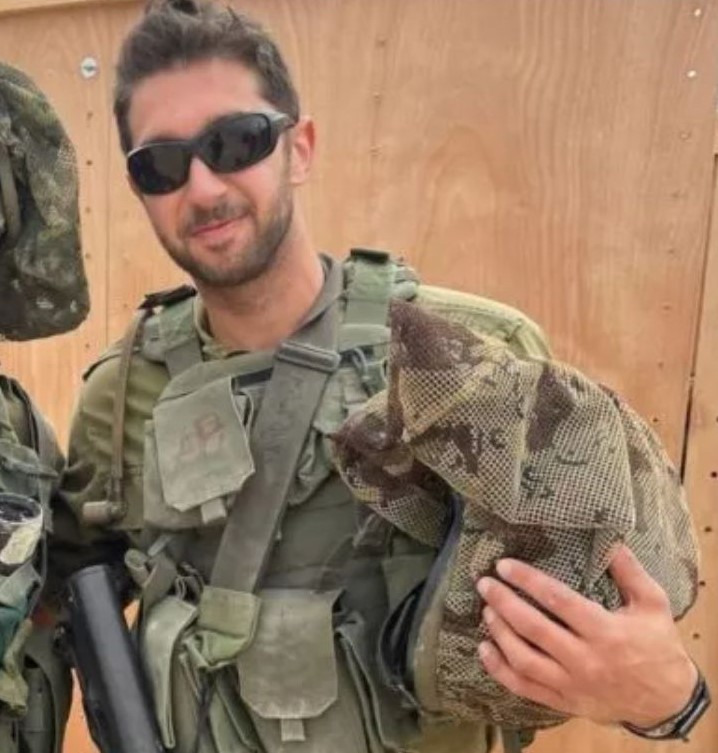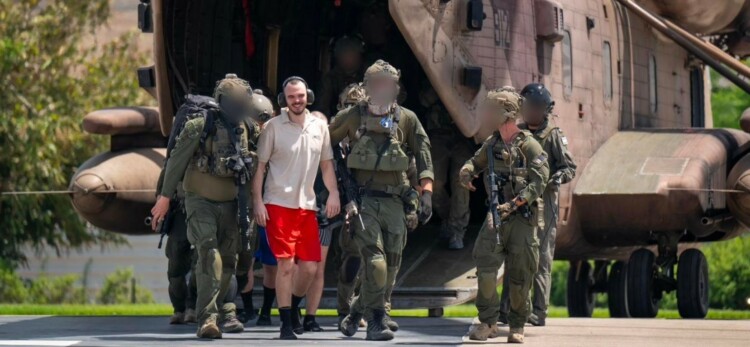Since October 7th, the international Jewish community has been grappling with an overwhelming sense of defeat. On that fateful day, our world was shattered as terrorists invaded Israel, killing over 1,163 citizens. From a per-capita perspective it would be the equivalent in the U.S. of nearly fifteen 9/11s. This brutal attack marked the beginning of a conflict that has seen progress in clearing Gaza of its terror infrastructure, but at a staggering cost. More soldiers have been buried in Israel since October 7th than in the last seventeen years combined, exacerbating an already heavy toll on our collective spirit.
Political infighting within Israel, mixed opinions about what price is worth paying in a deal with a terror group dedicated to Israel’s destruction (around 55% of Israelis now support a hostage deal at the expense of fully defeating Hamas), and the waning support from the international community have only deepened this despair. Even the U.S., supposedly Israel’s closest ally, has repeatedly distanced itself at a time when that relationship can afford no such gaps. As the toll on Israel’s spirit deepens, the fractures also appear abroad where even those who have fought against the enemies of all Western Democracies face a divisive and sometimes hostile environment.
When I came back to New York City after fighting terrorists in Gaza, I was called a terrorist by those who came to protest my events. On a Virgin Airlines flight back from London a few weeks ago, where I spoke about what I had seen in Gaza, I was asked to cover a shirt I was wearing disparaging Hamas. I told the flight attendants that Hamas was a designated terror organization by both the U.S. and the U.K., but they insisted that they needed to protect the feelings of all passengers (apparently even those who support terror groups). A friend of mine who spoke to a Church in Idaho about his experiences in the war was followed back to his hotel by 4 anti-Israel activists wearing Keffiyehs caught on CCTV holding hammers as they searched for him.
Amid this turmoil, a daring rescue operation this weekend offered a glimmer of hope. The successful retrieval of four hostages was not just a moral victory but a profound symbolic one. The bold rescue mission was carried out in broad daylight to maximize the element of surprise. Unverified reports suggest that as many as a dozen undercover operatives scoped out the area in the week leading up to the raid, even renting apartments near the buildings of the families who were holding the hostages. This mission will surely go down in history as one of the most successful and daring hostage rescue operations ever carried out.
Beyond the military success and boost to Israeli morale, the operation exposed the complicity of the Palestinian people in Gaza, many of whom have been actively aiding terrorists and holding Israeli civilians hostage in their homes. It also unveiled the deceit of supposedly innocent journalists killed in this war, like Abdallah Aljamal, who held 3 of the hostages that were freed in Saturday’s rescue.
The return of four hostages—one of whom had become a symbol of the October 7th tragedy—ignited spontaneous celebrations among Jews and Israelis worldwide. Lifeguards on the beach in Tel Aviv announced the successful operations to cheering crowds. Spontaneous celebrations broke out among Jewish communities across the world. In that moment, the Jewish community felt something that has seemed elusive since that dark day in October: hope.
The international community’s reaction to this rescue mission has varied, with some acknowledging the complexity of the situation and others continuing to criticize Israel’s actions.
After the extraction, one of the vehicles holding the hostages came under heavy fire by both machine guns and RPGs, incapacitating it. It was at this point that the IDF was forced to use overwhelming firepower to extract the hostages and the special forces team. Gaza’s Health Ministry, run by Hamas, says 274 Palestinians were killed in the raid. That is the same source of intelligence that originally claimed that the U.S. Navy SEALs had carried out the raid. The same source that claimed an Israeli airstrike was responsible for the death of hundreds of Palestinians at Al Ahli Arab Hospital, which was later proven to have been caused by an errant Palestinian rocket. The International community has seemingly accepted these numbers without question. BBC anchor Helena Humphrey asked a former IDF spokesperson if Israel had warned civilians in the area prior to conducting the undercover operation to free the hostages. Yes, you read that correctly.
While the scars of October 7th will remain with us, Operation Arnon, named after the commando who was killed in its execution, has given us a reason to feel joy in the midst of a time of deep sorrow. It has shown us that victories are possible and that hope, however far away it may sometimes feel, can be rediscovered.
—
About The Author

Corey Feldman is an American author, businessman, and a reserve soldier in the Israel Defense Force (IDF) Special Forces. He is a veteran of the Israel-Hamas war and has written A Line in the Sand: An American’s Story of Service and Sacrifice in the Israeli Special Forces.










COMMENTS